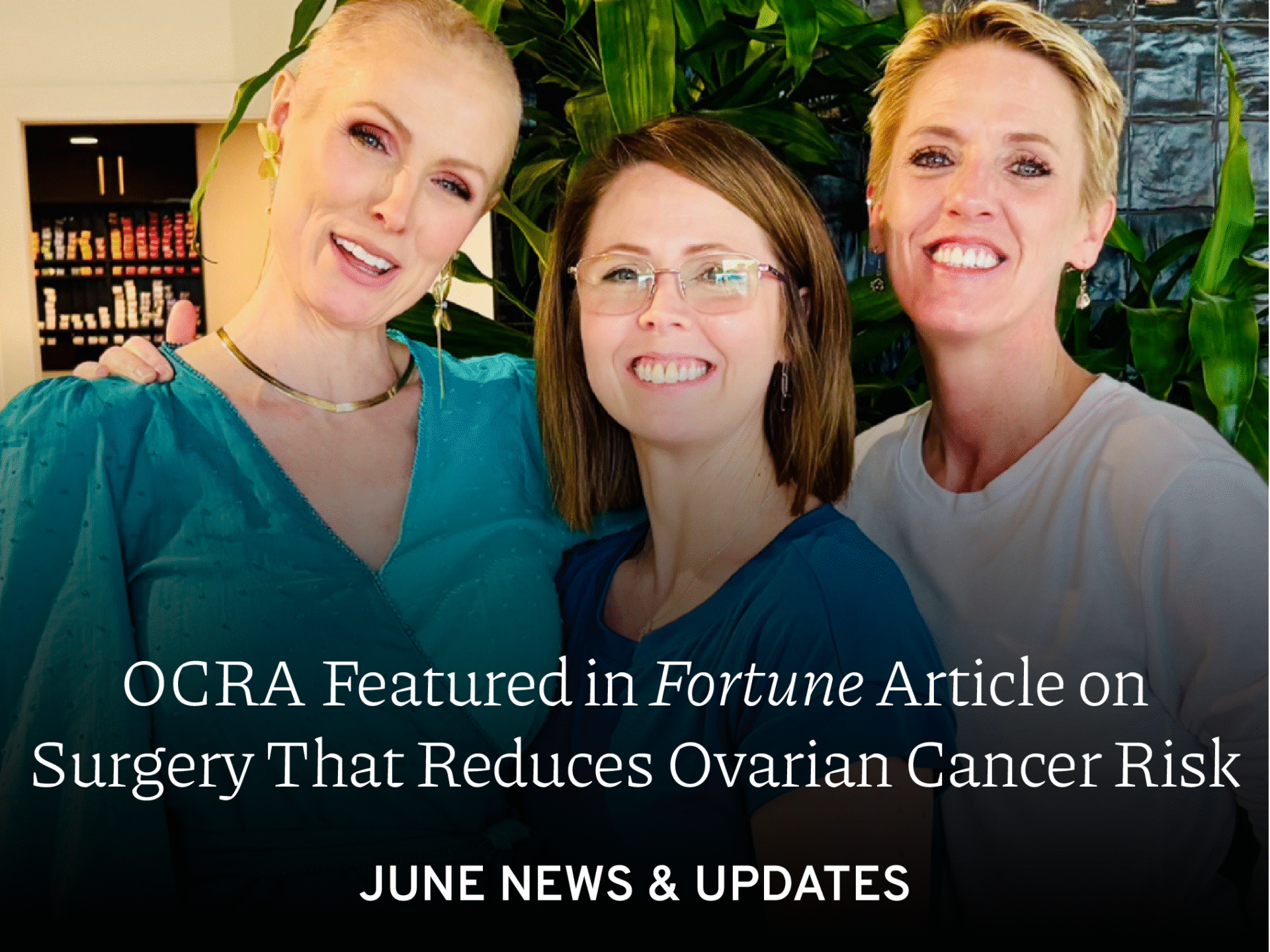Ovarian Cancer Research Alliance today announced the online publication of a collaborative best practices paper entitled, “Understanding Hereditary Cancer in the Era of Multi-Gene Panel Testing.” The paper offers key insights into the changing needs of individuals and family members who might be at risk for hereditary cancer. The paper also includes discussion of how advocacy groups and health care providers can support individuals along the continuum of the potential testing journey.
“The scientific advances around the causes and treatments of cancers are progressing quickly, and we have learned that genetic risk can span a variety of cancer types,” said Calaneet Balas, Executive Vice President. “Working together with our peer organizations, we are helping to create common language and understanding to clarify this complex topic and support individuals navigating the world of cancer genetics.”
Fourteen patient advocacy organizations focusing on several of the cancers for which there is known genetic risk co-authored the paper. The paper includes background on cancer genetics, highlights considerations for individuals, their families and health care providers and calls for continued collaboration among advocacy groups. The co-authoring organizations agreed on the need for a united approach in providing resources and educating cancer patients and those at risk.
Visit “Understanding Hereditary Cancer in the Era of Multi-Gene Panel Testing.”
About Hereditary Cancer and Genetic Testing
Hereditary cancer occurs when a gene that normally helps to prevent cancer is altered (or mutated). People with hereditary cancers are more likely to have relatives with the same type or a related type of cancer. In addition, they often develop cancer at an earlier than average age, and may also develop more than one cancer in their lifetime.
Hereditary cancer genetic tests analyze the DNA of genes known to be associated with certain types of cancers for changes or alterations. A single mutation may increase risk for several different cancer types while several mutations may increase risk for a single type of cancer. Some alterations are not associated with any known increased cancer risk. Individuals should discuss their cancer family history with a genetic counselor or other qualified healthcare professional.
###
The Ovarian Cancer Research Alliance (OCRFA) is the largest global organization dedicated to advancing private ovarian cancer research, advocating for increased federal research, raising awareness and furthering policies that support women and their families before, during and after a diagnosis. OCRFA, formerly the Ovarian Cancer Research Fund and Ovarian Cancer National Alliance, has led the way in advocacy, research and support for women and families for over 22 years.


